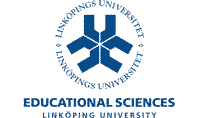|
|
| |
| SYLLABUS |
| Peace Education as Common Ethics in the Group,
30 ECTS Credits |
| |
COURSE CATEGORY Singel Subject Course
MAIN FIELD OF STUDY
SUBJECT AREA
|
|
COURSE CODE |
|
LKCA83 |
|
| AIM OF THE COURSE |
Through the course the student will
- acquire basic knowledge of different cultures, both ethnic and cultures within a culture
- develop a sensitivity to other cultures and look upon them as resources
- acquire knowledge of conflict solving
- acquire a deeper self understanding and examine own attitudes and values
- develop the skill of creating a conscious acting in relation to attitudes and values
- develop different tools to be prepared to meet different cultures |
| CONTENTS |
| Basic practices and theories concerning drama communication are main parts of the course. Culture meetings; history, tales and myths, religion, town/countryside, cultures within a culture are topics you deal with. We also train co-operation and confidence with focus on group dynamics and field studies as well as communication and internationalising through field studies, educational visits and thematic studies into different studies. |
| TEACHING |
Meetings, contacts and knowledge are ways of gaining a better insight. The studies will be characterized by experience oriented exercises and a reflective work in seminars led by teachers as well as self instructions. There will be
- litterature seminars
- guidance
- self-tuition
- workshops
- educational visits
|
| EXAMINATION |
Written and oral examinations in group and individual. Documentation of the seminars and the work in groups Project essay .
Students who have failed an examination are normally allowed to retake it on two additional occasions, one of which should be arranged shortly after the first examination.
Students failing an exam covering either the entire course or part of the course three times are entitled to have a new examiner appointed for the reexamination. |
| ADMISSION REQUIREMENTS |
Only general admission requirements: Completion of an upper secondary education and skills in English, both written and oral, corresponding to the level of English required in Swedish upper secondary education (eg. a TEOFL-score of at least 500 points for paper based test, 197 points for computer based test or 61 points for internet based test; IELTS with at least 5,0 overall and no part under 4,5, or equivalent)
Documented knowledge of English equivalent to “Engelska B” is required, or an international proficiency test, e.g. TOEFL, minimum score 550/213. |
| GRADING |
|
| CERTIFICATE |
| Course certificate is issued by the Faculty Board on request. The Department provides a special form which should be submitted to the Student Affairs Division. |
| COURSE LITERATURE |
|
The course literature is decided upon by the department
in question. |
| OTHER INFORMATION |
Planning and implementation of a course must take its starting point in the wording of the syllabus. The course evaluation included in each course must therefore take up the question how well the course agrees with the syllabus.
The course is carried out in such a way that both men´s and women´s experience and knowledge is made visible and developed. |
| |
Peace Education as Common Ethics in the Group
Peace Education as Common Ethics in the Group |
| |
Department responsible
for
the course or
equivalent:
ESI - Department of Arts, Craft and Design |
| |
|
|
|
|
|
| Registrar No: 70/03-41 |
|
Course Code: LKCA83 |
|
|
|
| |
|
Exam codes: see Local Computer System |
|
|
|
| Subject/Subject Area : |
|
|
|
|
|
| |
|
|
|
|
|
| Level |
|
Education level |
|
|
Subject Area Code |
|
Field of Education |
|
| A |
|
|
|
|
ÖÄA |
|
ÖV |
|
|
The syllabus was approved by the Board of Educational Sciences 2003-01-29
|
|
|
| |
